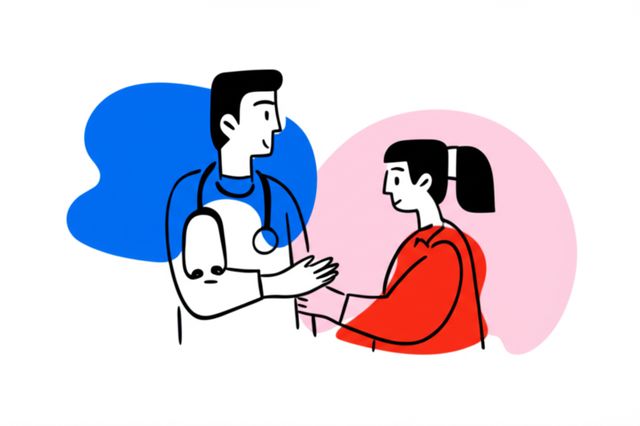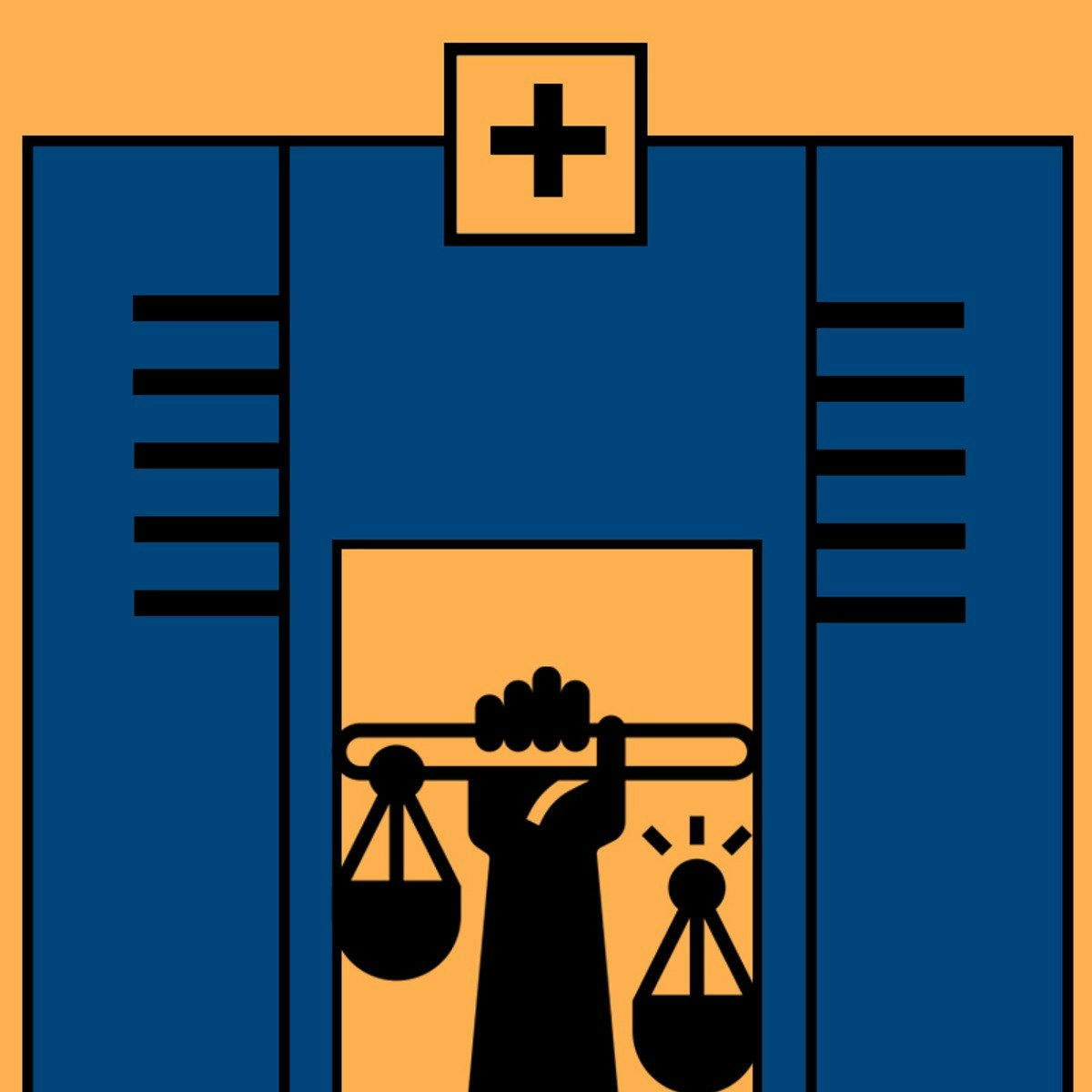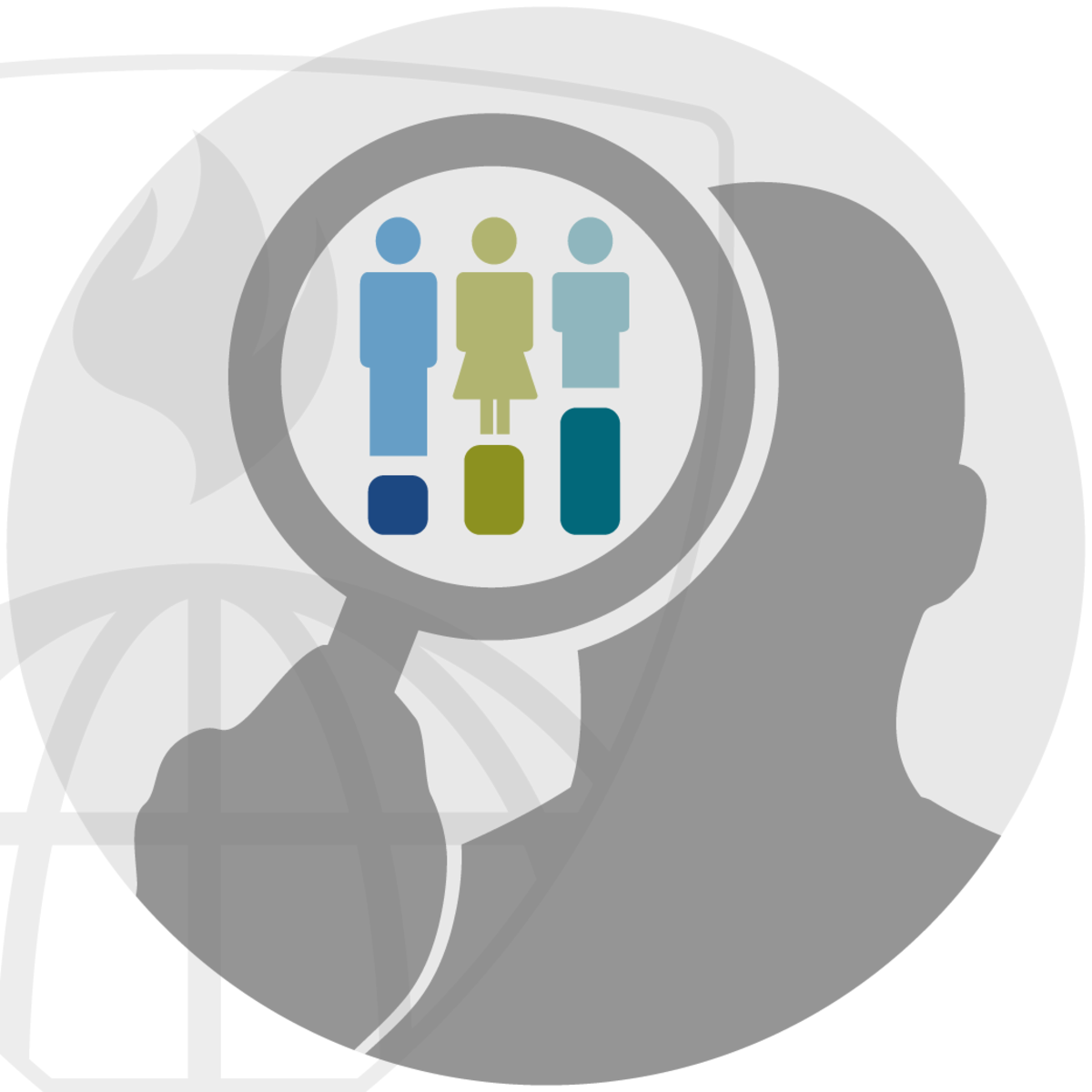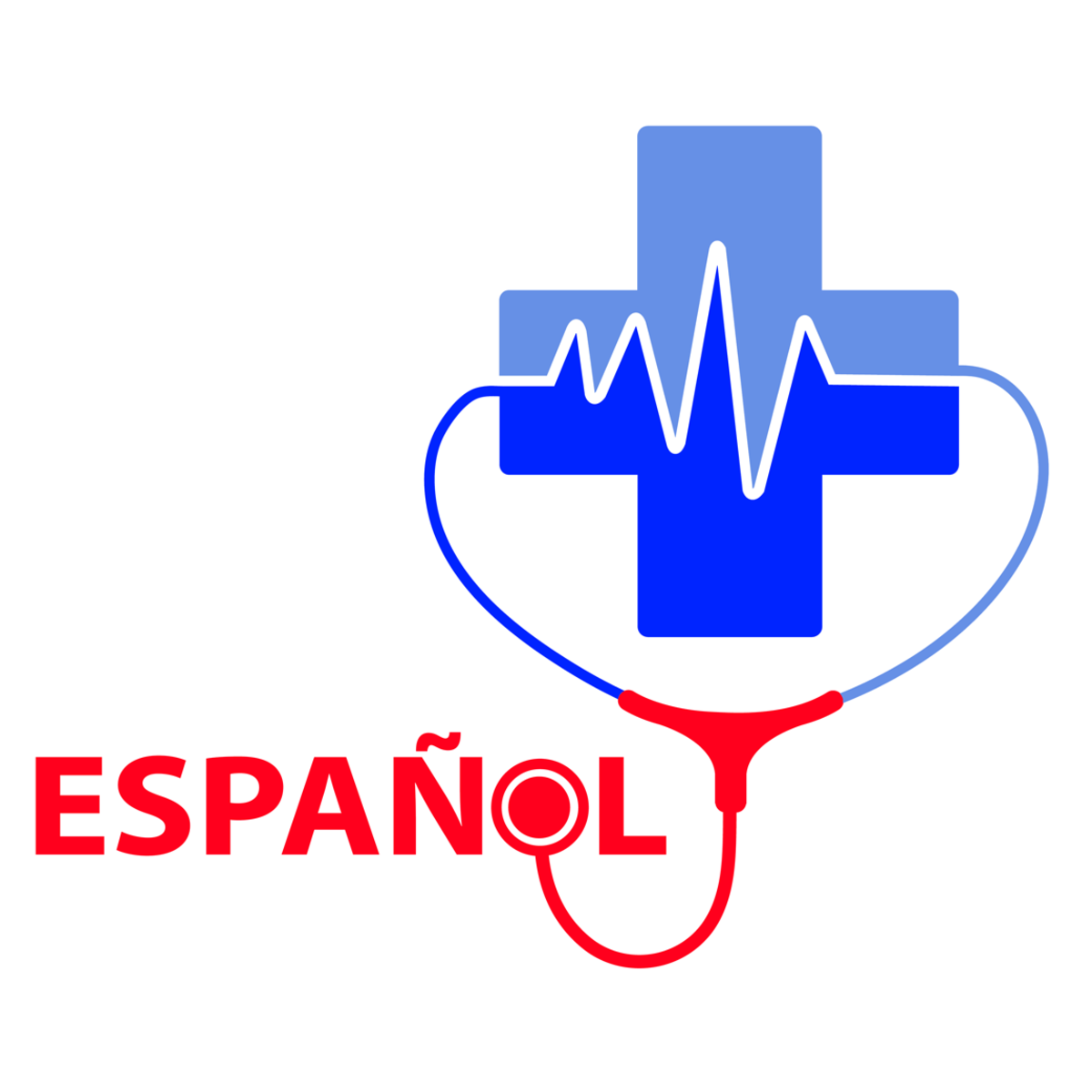Community Health Worker
A Career Profile: The Community Health Worker
Community Health Workers (CHWs) are vital members of the public health workforce. They serve as trusted liaisons, connecting individuals, families, and communities with essential health and social services. Often coming from the communities they serve, CHWs possess a unique understanding of local cultures, languages, and social contexts, enabling them to build strong relationships and bridge gaps between residents and the healthcare system.
Working as a CHW offers the profound opportunity to make a direct, positive impact on people's lives, particularly within underserved populations. It involves fostering healthier communities by empowering individuals with knowledge, resources, and support. The role is dynamic, blending education, advocacy, and direct assistance, making it an engaging path for those passionate about health equity and community well-being.
What Community Health Workers Do
Understanding the day-to-day reality of a Community Health Worker is key to deciding if this path aligns with your aspirations. The role is multifaceted, demanding a blend of interpersonal skills, health knowledge, and community awareness.
Core Duties and Activities
The primary responsibilities of a CHW often revolve around improving access to care and promoting healthy behaviors. This includes educating community members about health issues, disease prevention, and available resources. They might conduct home visits, facilitate support groups, or organize health education workshops.
Advocacy is another critical function. CHWs often speak up for their clients' needs within the healthcare system, helping them navigate complex processes like applying for insurance or accessing social services. They may also advocate for broader community health improvements by identifying systemic barriers and working with local organizations or policymakers.
Depending on their training and the specific program, some CHWs provide basic health services like monitoring vital signs, administering health screenings (e.g., blood pressure checks), or assisting with medication management reminders. They act as crucial links, ensuring individuals understand and follow treatment plans.
These introductory courses provide a good overview of public health principles and community engagement, which are central to the CHW role.
Serving Diverse Populations
Community Health Workers typically focus on populations facing significant health disparities or barriers to accessing care. This can include low-income families, ethnic minorities, immigrants, the elderly, individuals with chronic illnesses, or residents of geographically isolated areas. Their work is tailored to the specific needs and cultural contexts of these groups.
Understanding the unique challenges faced by different demographic groups is essential. For example, a CHW working with a refugee community might focus on navigating a new healthcare system and addressing language barriers, while one working in a rural area might concentrate on transportation issues and access to specialty care.
Effectiveness in this role hinges on cultural humility and the ability to build trust within the target community. CHWs leverage their shared experiences or deep understanding of the community's background to foster rapport and deliver culturally appropriate services.
Collaboration within Health and Social Systems
CHWs do not work in isolation. They are integral members of larger care teams, collaborating closely with doctors, nurses, social workers, case managers, and other health professionals. They provide valuable insights into patients' social circumstances, cultural beliefs, and potential barriers to care, enriching the team's understanding and ability to provide holistic support.
This collaboration extends beyond clinical settings to include partnerships with community organizations, schools, faith-based groups, and local government agencies. By connecting clients with resources like food banks, housing assistance programs, or job training services, CHWs address the social determinants of health that profoundly impact well-being.
Effective communication and coordination are paramount. CHWs must clearly document their activities, share relevant information with the care team (while respecting confidentiality), and facilitate smooth transitions for clients between different services and providers.
These courses offer insights into case management principles and coordinating care, skills valuable for CHW collaboration.
Becoming a Community Health Worker: Education and Training
The path to becoming a Community Health Worker can vary significantly depending on the location and employer. Unlike some healthcare roles with rigid, standardized educational requirements, the CHW field often values lived experience and community connection alongside formal training.
Laying the Groundwork: High School and Early Experience
For those considering this career early on, certain high school courses can provide a helpful foundation. Classes in health, biology, psychology, sociology, and communications are relevant. Developing strong interpersonal skills, empathy, and communication abilities is crucial, often nurtured through extracurricular activities or part-time jobs involving customer service or community interaction.
Volunteering with local health clinics, community centers, or non-profit organizations can provide invaluable exposure to the field. This hands-on experience not only strengthens a future application but also helps individuals confirm their passion for community-based work and understand the realities of the role.
Bilingualism or proficiency in languages commonly spoken in the target community is often a significant asset, sometimes even a requirement, for CHW positions. Starting language studies early can be highly beneficial.
Formal Education Options
While a specific degree is not always mandatory, many CHWs hold an associate's or bachelor's degree. Relevant fields of study include Public Health, Social Work, Sociology, Psychology, Health Education, or Human Services. These programs provide theoretical knowledge about health systems, social determinants of health, communication strategies, and ethical considerations.
Some community colleges and universities offer specific certificate programs or concentrations in Community Health Work. These programs are often designed to meet state-specific training requirements and cover core competencies essential for the role.
Even without pursuing a full degree, individual courses in relevant areas can build necessary skills. Exploring options through platforms like OpenCourser can supplement existing knowledge or provide foundational learning in areas like health communication or cultural competency.
Certification and Credentialing
The landscape of CHW certification is evolving and varies widely by state. Some states have established mandatory certification processes, requiring specific training hours, supervised fieldwork, and passing an exam. Others have voluntary certification or no formal state-level credentialing requirements at all.
It is essential to research the specific requirements in the state where you intend to work. State public health departments or CHW associations are usually the best sources for this information. National organizations are also working towards standardizing core competencies, which may influence future credentialing efforts.
Certification often demonstrates a standardized level of knowledge and skill, potentially enhancing job prospects and credibility. Even where not required, completing a recognized training program or obtaining certification can be advantageous.
This book offers insights into the practical application of public health law, relevant for understanding regulations impacting CHW work.
Online Learning for Aspiring and Practicing CHWs
Online education offers flexible and accessible pathways for individuals seeking to enter the Community Health Worker field or enhance their existing skills. It can be particularly valuable for career changers or those balancing learning with work and family responsibilities.
Developing Core Competencies Online
Many core competencies required for CHW roles can be effectively learned through online courses. Foundational knowledge in public health principles, understanding social determinants of health, health communication techniques, advocacy skills, cultural competency, and basic health education topics are well-suited for online delivery.
Online platforms provide access to courses from reputable universities and organizations, allowing learners to study specialized topics like maternal and child health, chronic disease management, or mental health first aid. This flexibility enables individuals to tailor their learning to specific interests or community needs.
OpenCourser provides a vast catalog where you can explore courses in Health & Medicine, compare syllabi, and find options that fit your schedule and learning goals. Features like summarized reviews and activity suggestions can help you choose and make the most of your online learning experience.
These online courses cover essential CHW skills like training principles, community health assessment, health equity, and communication.
Integrating Online Learning with Practical Experience
While online courses excel at delivering theoretical knowledge and foundational skills, community health work is inherently practical and people-focused. Therefore, online learning must typically be supplemented with hands-on experience or fieldwork.
Some formal CHW training or certification programs, even those offered partially online, incorporate requirements for internships, practicums, or supervised fieldwork. This ensures learners can apply concepts in real-world settings, develop interpersonal skills, and gain direct experience interacting with community members and healthcare systems.
For self-directed learners using platforms like OpenCourser, seeking volunteer opportunities or entry-level positions in related fields (e.g., health outreach, patient navigation) can provide the necessary practical component. Documenting these experiences can be valuable for future job applications or certification requirements.
Validating Skills from Non-Traditional Pathways
Individuals entering the CHW field through non-traditional pathways, relying heavily on online learning and practical experience rather than a formal degree, may need strategies to validate their skills to potential employers.
Building a portfolio showcasing completed online courses (including certificates where available), descriptions of volunteer work or projects undertaken, and letters of recommendation from supervisors or community partners can demonstrate competence. Highlighting specific skills learned, such as proficiency in health communication software or experience with specific community assessment techniques, is also beneficial.
In states with certification, successfully passing the certification exam serves as a key validation point. For those without formal certification options, emphasizing relevant lived experience, language skills, and deep community connections can be equally persuasive during the hiring process.
Consider these books for deeper insights into community health nursing and promotion, complementing online coursework.
Career Paths and Advancement for Community Health Workers
A career as a Community Health Worker offers various opportunities for growth and specialization. While entry points are accessible, dedicated individuals can progress into leadership roles and make broader impacts on community health.
Starting Out and Moving Up
Most individuals begin in entry-level CHW positions, often focusing on general outreach, education, and client support within a specific program or community. Early career roles provide essential experience in building trust, navigating local resources, and understanding the practical challenges faced by clients.
Promotion timelines can vary based on the organization, funding, individual performance, and additional training or education pursued. With experience, CHWs may take on more complex cases, mentor new team members, or lead specific projects or initiatives. Moving into supervisory roles, such as a
, involves overseeing a team of CHWs, managing program activities, and contributing to program development.Salary expectations differ based on location, employer (e.g., hospital, non-profit, public health department), experience, and education level. While entry-level salaries may be modest, advancement into specialized or supervisory roles typically comes with increased compensation.
Opportunities for Specialization
As CHWs gain experience, they often develop expertise in specific areas of health or working with particular populations. Specialization allows for deeper knowledge and more targeted interventions. Common areas include:
- Maternal and Child Health: Supporting pregnant individuals, new parents, and infants with education, resources, and connections to prenatal and pediatric care.
- Chronic Disease Management: Assisting individuals with conditions like diabetes, hypertension, or asthma through education, self-management support, and care coordination.
- Mental Health and Substance Abuse: Providing support, education, and linkage to care for individuals facing mental health challenges or substance use disorders.
- HIV/AIDS Prevention and Care: Conducting outreach, education, testing referrals, and support for individuals affected by HIV/AIDS.
- Gerontology: Focusing on the unique health and social needs of older adults.
These specialized courses align with potential CHW focus areas.
Leadership in Public Health
Experienced CHWs possess invaluable ground-level perspectives on community needs and systemic challenges. This unique insight positions them well for leadership roles within public health organizations, community clinics, hospitals, or non-profits.
Potential leadership positions include Program Coordinator,
, Outreach Director, or . These roles often involve program planning and evaluation, staff supervision, budget management, grant writing, policy advocacy, and building community partnerships.Pursuing further education, such as a Master's degree in Public Health (MPH) or Health Administration (MHA), can facilitate advancement into higher-level leadership positions. The combination of practical CHW experience and advanced academic training creates highly effective leaders capable of designing and implementing impactful community health strategies.
Ethical Practice in Community Health Work
Community Health Workers operate in a unique space, often straddling the line between formal systems and informal community networks. This position presents distinct ethical challenges that require careful consideration and adherence to professional standards.
Maintaining Confidentiality
Working within close-knit communities, CHWs often possess sensitive information about individuals and families they know personally or interact with regularly outside of work. Maintaining strict confidentiality is paramount but can be challenging when personal and professional relationships intertwine.
CHWs must clearly understand and adhere to privacy regulations (like HIPAA in the U.S.) and organizational policies regarding client information. They need skills to navigate social situations where they might be pressured, intentionally or unintentionally, to disclose confidential details. Establishing clear boundaries from the outset is crucial.
Ethical dilemmas can arise when balancing the need to share information with the care team for effective coordination versus protecting a client's privacy wishes. Clear communication with clients about how their information will be used and obtaining appropriate consent are essential practices.
Navigating Cultural Sensitivities
Cultural competence and humility are cornerstones of effective CHW practice. This involves respecting diverse beliefs, values, and practices related to health and well-being. CHWs must be self-aware of their own biases and continuously learn about the cultural contexts of the communities they serve.
Misunderstandings can arise from differing communication styles, health beliefs, or mistrust of the formal healthcare system. CHWs play a vital role in bridging these cultural gaps, ensuring that services are delivered in a respectful and appropriate manner. This might involve using interpreters, adapting educational materials, or incorporating traditional healing practices where appropriate and safe.
Ethical practice demands advocating for culturally sensitive care within the broader health system, educating colleagues about community perspectives, and challenging practices that may perpetuate disparities.
This course focuses on valuing diverse perspectives, a key element in ethical social work and community health.
Balancing Advocacy and Boundaries
CHWs are powerful advocates for their clients, helping them voice their needs and overcome barriers to care. However, this advocacy role must be balanced with maintaining professional boundaries. It's easy for CHWs, driven by empathy and strong community ties, to become overly involved in clients' lives.
Setting clear expectations about the scope of their role, working hours, and the types of support they can provide is essential to prevent burnout and maintain objectivity. Ethical practice involves empowering clients to advocate for themselves whenever possible, rather than creating dependency.
Navigating situations where a client's choices conflict with recommended health practices, or where systemic issues seem insurmountable, requires ethical reflection and often, supervision or consultation with colleagues. Understanding the limits of their role and knowing when to refer clients to other professionals are critical skills.
Job Market and Future Trends for CHWs
The demand for Community Health Workers is growing, driven by increasing recognition of their value in improving health outcomes, reducing healthcare costs, and addressing health inequities. Understanding the job market dynamics and future trends is important for career planning.
Growth Projections and Demand
The U.S. Bureau of Labor Statistics projects strong growth for health education specialists and community health workers. For instance, employment in this category is projected to grow significantly faster than the average for all occupations. According to the Bureau of Labor Statistics Occupational Outlook Handbook, the field is expected to expand as efforts increase to improve health outcomes and reduce healthcare costs through education and access programs.
Demand varies regionally, often correlating with areas having significant health disparities, large underserved populations, or specific public health initiatives. Growth is driven by factors like an aging population requiring more chronic disease management, efforts to integrate CHWs into clinical care teams, and increased focus on preventive care and addressing social determinants of health.
Job settings are diverse, including hospitals, community clinics, public health departments, non-profit organizations, faith-based groups, and insurance companies implementing population health strategies.
Influence of Healthcare Policy
Healthcare policy significantly impacts the CHW workforce. Initiatives aimed at improving care coordination, reducing hospital readmissions, and expanding access to preventive services often create funding streams and incentives for employing CHWs.
Policies promoting value-based care models, where providers are reimbursed based on patient outcomes rather than volume of services, further underscore the importance of CHWs in addressing social barriers and improving patient engagement. Legislation related to the Affordable Care Act and ongoing healthcare reform discussions continue to shape the environment for CHW integration and reimbursement.
Advocacy efforts by CHW associations and public health organizations play a crucial role in securing sustainable funding and formal recognition for the profession within state and federal policies. Staying informed about relevant policy developments is important for CHWs and the organizations that employ them.
Technology's Role in Service Delivery
Technology is increasingly influencing how CHWs deliver services. Mobile health (mHealth) tools, such as apps for health education, appointment reminders, or remote monitoring, can enhance client engagement and support.
Electronic Health Records (EHR) systems are being adapted to better incorporate CHW documentation and facilitate communication within care teams. Telehealth platforms may allow CHWs to connect with clients remotely, overcoming transportation barriers, although in-person interaction often remains central to building trust.
Data collection and analysis tools help CHWs and programs track progress, identify community needs, and demonstrate impact. Basic digital literacy and comfort using relevant software are becoming increasingly important skills for CHWs.
This book explores the intersection of technology and medicine, relevant to the evolving CHW role.
Developing Essential Cultural Competence
Cultural competence is not just a desirable skill for Community Health Workers; it is fundamental to their effectiveness. It involves the ability to interact respectfully and effectively with people from diverse cultural backgrounds, understanding how cultural factors influence health beliefs and behaviors.
Language and Communication
Language barriers can significantly impede access to care and understanding of health information. CHWs who speak the language(s) of the community they serve are invaluable assets. Even for monolingual CHWs, knowing how to effectively work with interpreters and utilize translated materials is crucial.
Communication extends beyond language to include non-verbal cues, understanding different communication styles, and tailoring health messages to be culturally relevant and easily understood. Active listening and empathy are key to building rapport and ensuring messages are received as intended.
Learning basic conversational phrases or specific health terminology in a community's language can demonstrate respect and greatly facilitate communication. Online language courses or community-based classes can be valuable resources.
These courses offer practical language skills relevant in diverse community settings, including healthcare contexts.
Understanding and Respecting Cultural Norms
Effective CHWs strive to understand the cultural norms, values, beliefs, and traditions of the communities they serve. This includes understanding family structures, gender roles, religious beliefs, dietary practices, and perceptions of health, illness, and healing.
This understanding helps CHWs avoid misunderstandings, build trust, and design interventions that are culturally acceptable and sustainable. It requires ongoing learning, humility, and a willingness to challenge one's own assumptions.
Engaging with community leaders, participating in local events, and respectfully asking questions are ways to deepen cultural understanding. Recognizing the diversity within any cultural group is also important, avoiding stereotypes and treating each individual with respect.
Building Trust Across Cultures
Trust is the bedrock of the CHW-client relationship. In communities that have experienced discrimination or mistrust of the healthcare system, building this trust requires patience, consistency, and genuine respect.
Demonstrating reliability, following through on commitments, maintaining confidentiality, and showing genuine care and empathy are essential trust-building behaviors. Being transparent about one's role and limitations also fosters trust.
CHWs act as cultural brokers, helping both clients and healthcare providers understand each other's perspectives. By validating clients' experiences and advocating for culturally sensitive care, CHWs empower community members and strengthen their connection to the health system.
Navigating Challenges in Community Health Work
While deeply rewarding, the role of a Community Health Worker also presents significant challenges. Acknowledging these difficulties is important for setting realistic expectations and developing coping strategies.
Burnout and Emotional Toll
Working closely with individuals facing difficult circumstances—poverty, illness, trauma, systemic barriers—can be emotionally taxing. CHWs often absorb the stress and suffering of their clients, leading to compassion fatigue and burnout if not managed proactively.
Establishing clear boundaries, practicing self-care, seeking peer support, and accessing supervision or mental health resources are crucial for maintaining well-being. Organizations employing CHWs have a responsibility to foster a supportive work environment that recognizes and addresses these risks.
Learning stress management techniques and recognizing early signs of burnout are important skills for longevity in the field.
Dealing with Resource Limitations
CHWs often work in communities with limited resources, facing shortages in affordable housing, nutritious food, transportation, childcare, and healthcare services. Connecting clients to needed resources can be frustrating when those resources are scarce or inaccessible.
This requires creativity, persistence, and strong networking skills to identify and leverage all available community assets. It also highlights the importance of CHW involvement in advocacy for policy changes and increased resource allocation for underserved communities.
Managing client expectations and helping them navigate complex eligibility requirements for existing programs are also common challenges.
Systemic Barriers and Policy Hurdles
CHWs frequently encounter systemic barriers that impede their clients' progress and well-being. These can include complex bureaucratic processes, lack of insurance coverage, discriminatory practices, or policies that inadvertently create obstacles to accessing care or support.
While CHWs advocate for individual clients, they also play a role in identifying and documenting these systemic issues. Collaborating with community partners and advocacy groups to push for policy changes is often part of the long-term strategy for improving community health.
Navigating these systems requires resilience, patience, and a deep understanding of how policies impact individuals on the ground. It can be frustrating work, but it is essential for driving meaningful change.
Frequently Asked Questions about CHW Careers
Here are answers to some common questions individuals have when exploring a career as a Community Health Worker.
Do I need a college degree to become a CHW?
Not always. While some positions may prefer or require an associate's or bachelor's degree in a related field (like public health or social work), many CHW roles prioritize lived experience, community ties, language skills, and specific training or certification over a formal degree. Requirements vary significantly by state and employer, so research local expectations. Check the "Formal Education Pathways" section for more details.
How long does it typically take to get promoted?
Promotion timelines depend heavily on the organization, funding availability, individual performance, and opportunities for specialization or leadership development. With consistent performance and potentially additional training, CHWs might move into mentoring, specialized roles, or supervisory positions within a few years. Advancement into program management often requires more experience and sometimes further education. See the "Community Health Worker Career Progression Paths" section for more context.
Can CHW certification or licensure be transferred between states?
Currently, CHW certification is largely state-specific, and direct reciprocity (transferability) between states is uncommon. If you plan to move, you will likely need to meet the certification requirements of the new state, which may involve additional training or exams. National efforts are underway to standardize competencies, which could facilitate future reciprocity.
Is being bilingual a requirement?
While not universally required, bilingualism or multilingualism is a highly valued asset, especially when working in diverse communities. In some positions serving specific language groups, fluency may be mandatory. Strong communication skills, including the ability to work effectively with interpreters, are essential regardless of language proficiency. Explore the "Cultural Competence Development" section for insights.
What role do CHWs play in crisis situations?
During public health crises (like pandemics or natural disasters), CHWs play crucial roles. They can disseminate accurate information in culturally appropriate ways, combat misinformation, connect residents to emergency resources, provide psychosocial support, assist with contact tracing, and identify vulnerable individuals needing extra help. Their established community trust makes them vital first responders and recovery agents.
What are common career alternatives or next steps for CHWs?
The skills and experience gained as a CHW are transferable to various roles. Former CHWs may move into social work, case management, public health education, program coordination, policy advocacy, nursing (often requiring further education), or healthcare administration. The path often depends on individual interests and further training pursued. Consider exploring related careers like
or .Helpful Resources
For further exploration, consider these resources:
- CDC Community Health Worker Resources: Information from the U.S. Centers for Disease Control and Prevention.
- National Association of Community Health Workers (NACHW): A professional organization offering resources, advocacy, and networking.
- State Public Health Department Websites: Check your specific state's health department site for local CHW training and certification information.
- OpenCourser Health & Medicine Courses: Browse a wide range of online courses relevant to community health work.
Embarking on a career as a Community Health Worker is a commitment to service, equity, and community empowerment. It requires dedication, empathy, and resilience, but offers the unique reward of making a tangible difference in the health and well-being of others. Whether you are starting your career journey, considering a pivot, or seeking to enhance your skills, the path of a CHW is one of significant impact and personal growth.

























